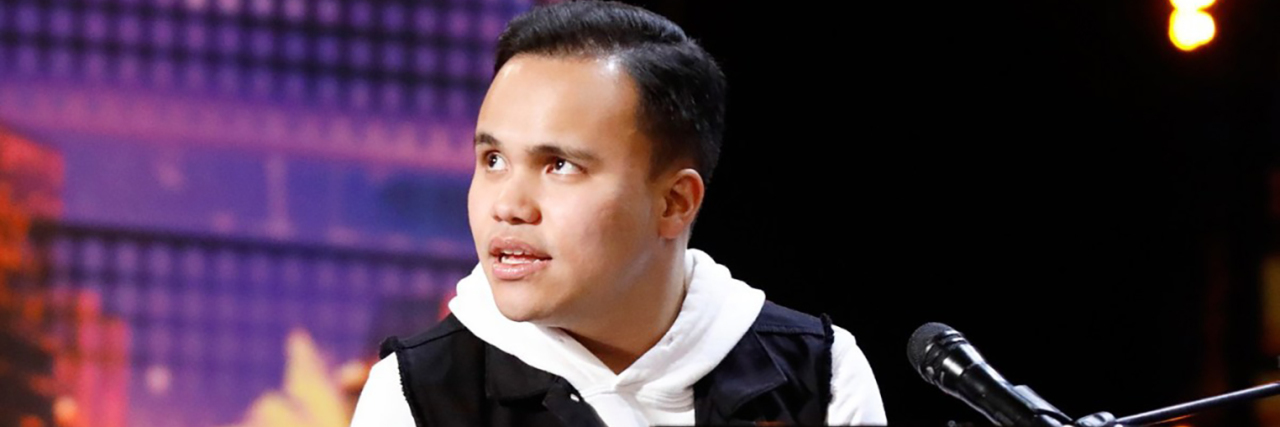How I Feel About the Response to Kodi Lee as an Autistic Viewer
If you haven’t heard Kodi Lee’s audition on “America’s Got Talent,” according to the Internet, you’d be considered “living under a rock.” Celebrities from Terry Crews to Oprah Winfrey have retweeted the AGT video, which has been viewed online over 46 million times. Thousands of people on social media have shared this video, commenting on how emotional it made them feel and how “inspired” they are by Kodi Lee’s performance.
Why is his talent any different from most people who go on the show?
Kodi Lee is blind and autistic, and even though the judges seemed apprehensive the moment he walked on stage with his mother guiding his steps, those thoughts appeared long gone once he sat behind the piano and performed Donny Hathaway’s “A Song for You.” Each judge appeared to be moved in different ways, from sitting back stunned to wiping away tears. After his performance and a standing ovation, one of the judges, Gabrielle Union, pressed the golden buzzer and sent Lee further into the competition.
Great story, right? Needed a few tissues after watching his performance? I did too.
My issue is not with his performance. His talent is incredible and anyone, regardless of musical experience, could see that. The issue is the way many people, not just the ones in the audience, responded afterward.
As an autism activist, every time someone who is autistic goes viral on social media, I learn as much about the situation as I can and glean as many opinions as I can from people from all walks of life.
In this situation, I have seen comments like “Kodi Lee Defeats Autism,” “Autism and blindness can’t erase the smile from the face of Kodi Lee,” “Erase the DIS, highlight the ABILITY” and “His only language is MUSIC.” These kinds of comments are turning Lee’s amazing talent into “inspiration porn” — feel-good stories for non-disabled people.
Being autistic myself, it always rubs me the wrong way when the media turns a disabled person’s struggle to survive and use their talents to get through life into inspiration for non-disabled people to “see the world in a new way.” Lee’s own mother said music saved him when he was younger. And that’s great! Good for him to find an outlet when he struggles to fit into a world that’s not made for people like us. But turning his talent and his life into a cry to “erase the dis and highlight the ability” and to push the ideals that “autism can be defeated” and that “autism and blindness take away from true happiness” is disturbing.
Disability is not a bad word. Making it a bad word hurts disabled people. Autism is not something to be defeated, it is who we are. It is how our brains function. Describing autism as a “battle” further perpetuates the cure narrative, which is harmful.
Autistic people and blind people smile. I don’t know why on earth some people assume disabled people are not happy because of their disability. Most disabled people I know are happy despite their circumstances. They choose to accept who they are, so why shouldn’t the rest of the world? Why isn’t the world more wheelchair accessible? Why aren’t people more accepting of those who have intellectual or physical disabilities? Why do they often either shun them or put them on pedestals as inspiration?
Disabled people are talented.
Autistic people are talented.
Why is this still coming as a surprise to the general public? Why are disabled people still treated as “inspirations” when their talents are included in something like this?
Is Kodi Lee an incredible artist? Yes! But instead of his autism and blindness being the forefront of the news stories about him, why aren’t they talking more about the amazing talents he has?
Instead of trying to take apart the term “disabled,” why don’t they focus on including more disabled people in music so it doesn’t come as a surprise when an autistic person or a blind person has an amazing gift?
So many of us have incredible talents that can be shared with the world, but inspiration porn picks apart these stories and creates us into commodities to “feel good,” not humans with gifts that can change the world. We can change the world. But you have to listen to us first.

